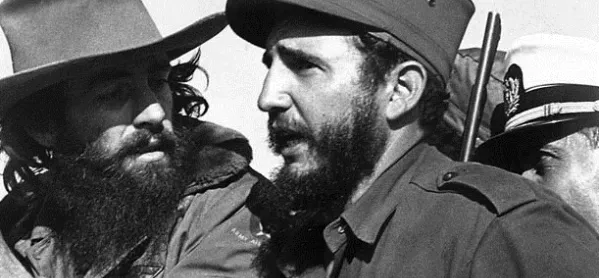This week, The Times published an investigative report on the growing demand for compulsory, modernised sex and relationships education (SRE) in schools.
Also this week, journalist James O’Brien declared 2016 to be “the year that nuance died” during a discussion on his LBC show about the nature and character of Fidel Castro. These two seemingly disparate media offerings are, as you will discover if you’re kind enough to read on, related.
At Self-Esteem Team, we’ve been workshopping a truly fit-for-purpose, non-judgmental, non-heteronormal-assumption-making class on healthy relationships in the modern world for about a year. The task is more momentous than it might first appear.
We do not want to imply that all young men are potential rapists, or turn them off with a transparently feminist agenda. (However much this agenda might be needed, framing is important - a message means nothing if no one’s listening).
Neither do we want to terrify young women more than they already are regarding the potential sexual landscape that awaits them.
Yet in a cultural climate where research discussed in the Channel 4 documentary Porn on the Brain reveals that teenagers are eschewing “real” sexual encounters in favour of increasingly hardcore internet pornography, 52 per cent of 12-year-olds are engaging in porn use (with boys predominantly reporting resultant feelings of excitement and girls fear) and where there is still a widespread problem with understanding what constitutes consent, it’s clear action needs to be taken.
The education young people need doesn’t just relate to the act of sex - hence the “r” in SRE.
For my personal contribution to our class, I started by reflecting on my time volunteering in refuges for victims of domestic abuse. It’s important to note that those on the receiving end of abuse in relationships can be any gender.
The case studies I subsequently interviewed for my book included straight, gay and transgender women and men.
This experience, I believe, has given me a good understanding of what a relationship at its most toxic looks like, and talking to victims has helped me to grasp how it begins and how increasingly unacceptable behaviour is incrementally excused, over time.
And since many of these victims had discovered that their children were being sexually abused by their partners, their comments were particularly illuminating in terms of the new calls to educate younger children on understanding and reporting when they are being groomed.
The most commonly repeated phrase during my discussions with victims of abuse was: “S/he could be so nice, sometimes.”
‘The world isn’t just good or evil’
This is incredibly telling. It speaks of a person who was unable to compute what was happening to them because they couldn’t reconcile the behaviour of their abuser with their preconceived notion of what abusers are “like”.
After all, we are taught since our earliest infancy, through fairytales and cartoons, that the world is divided into heroes and villains, “goodies” and “baddies”, absolute virtue or evil.
One of the kindest things we can do for children and young people, I have therefore concluded, is to encourage them to question these preconceptions.
In the socio-political climate of 2016, this has become increasingly difficult.
On social media, we exist in silos, affiliating ourselves with like-minded camps, and often this involves turning high-profile figures into caricatures and adopting a “stance” on them - whether it’s Donald Trump, Boris Johnson, Fidel Castro or Simon Cowell.
By proxy, not only do we role-model to children a perception of the world in black and white, we prime them to stereotype themselves, too - to believe that a blemish on their record makes them “naughty” or “bad”.
We all have heroism and toxicity within us - what differentiates us are our values, empathy, ability to learn from mistakes and our respect for others.
Teaching children that people who might otherwise seem “good” are capable of behaving unacceptably and that it is this behaviour which must be challenged, reported and stopped is, I believe, an essential cornerstone of effective SRE.
And this message can be enforced in all of our attitudes and conversations by acknowledging the gift we give to children when we teach them nuance.
Natasha Devon is the former UK government mental health champion for schools and founder of the Body Gossip Education Programme and the Self-Esteem Team. She tweets as @NatashaDevonMBE
Want to keep up with the latest education news and opinion? Follow TES on Twitter and like TES on Facebook



